#Prince Talal bin Mohammed
Text











King Abdullah II, Queen Rania and Crown Prince Hussein of Jordan attended the national event marking the Silver Jubilee, held on the 25th Accession to the Throne Day on 9 June 2024.
Upon Their Majesties’ arrival to the event venue surrounded by the Red Motorcade, the national anthem was played and Royal Jordanian Air Force fighter jets conducted a fly-past.
Around 9,000 Jordanians attended the event, including members of the Royal family, senior officials and officers, and diplomats from Arab and foreign countries.
The event highlighted Jordan’s achievements throughout a quarter of a century, through a military parade by the Jordan Armed Forces-Arab Army and security agencies, showcasing the latest developments in these national institutions, reflecting the high professionalism and commitment of its personnel.
Around 3,200 personnel from all military and security formations and units marched before the stands.
The military parade also showcased various JAF vehicles, including tanks, cannons, and other weapons recently introduced to service, as well as defence machinery manufactured by the Jordan Design and Development Bureau, along with air shows by the Royal Jordanian Air Force, and free falling paratroopers.
The JAF musical band also performed at the event.
During the event, His Majesty and the attendees saluted border guards and anti-terrorism troops, as well as cadres who participated in airdrops to Gaza and worked at the field hospitals in the strip, in recognition of their efforts, and their role in safeguarding Jordan’s stability.
The event also featured cultural and folklore segments representing all governorates performed by over 1000 young men and women, with 12 floats representing each governorate.
A group of young Jordanians performed the Silver Jubilee anthem and another national song composed for the occasion.
#King Abdullah II#Queen Rania#crown prince hussein#Princess Rajwa#princess muna#princess iman#prince hashem#Prince Ghazi#Princess Miriam Ghazi#Prince Mired#princess dina mired#Prince Talal bin Mohammed#Princess Ghida#Prince Nayef bin Asem#princess noor#princess rajaa#Princess Basma#prince muhammad talal#princess salma#Prince Faisal#zeina lubadeh#Princess Jalilah#Princess Rym#prince ali#prince hashim#Princess Fahdah#princess alia#Prince Abdullah#princess rayet al noor#jordanian royal family
41 notes
·
View notes
Text
* * * Las Vegas Shooting * * *
Part 2
What else was going on during the LAS VEGAS SHOOTING that they didn’t want us to know about?
There were two things/motives going on with this FALSE FLAG…possibly more.
Let’s talk about the first one. 👇
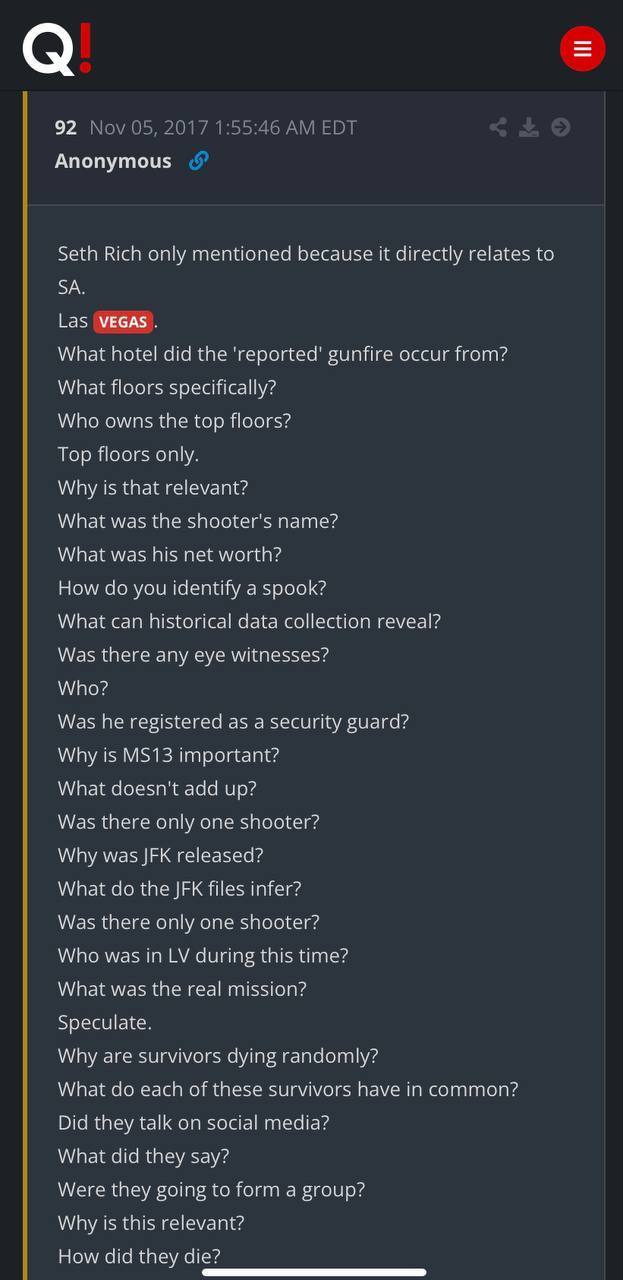
Let’s take a look at this VERY IMPORTANT Q drop.
We have talked about many of these elements… pointed out by Q…in reference to the Las Vegas shooting.
The other elements will be discussed as we dig further.
☝️That Q drop (#92) was dropped on NOVEMBER 5th!!
In the movie “Back to The Future”…the professor and Marty proclaimed “TIME TRAVEL was discovered on NOVEMBER 5th!”
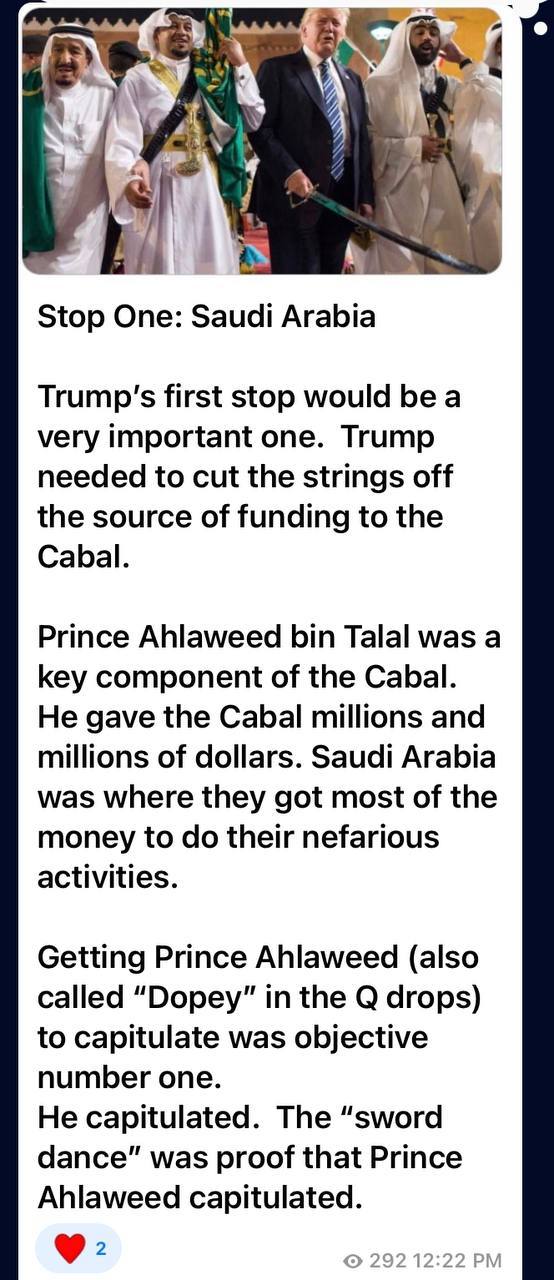
One backstory to this presentation… May 30th, 2022 presentation titled “Capitulation/Trump’s World Tour.” This becomes relevant to the Las Vegas Shooting!

the Patriot Act several times now, and how that act, which was signed by President George W. Bush after 9/11…gave our government, the NSA, and the intelligence agencies the ability to spy on us Americans.
When Trump came into office, he was able to use the Patriot Act in his favor.
He was able to connect all the dots with the cabal… who was connected to who…who was funding who, etc.
TRUMP “HAD IT ALL!”
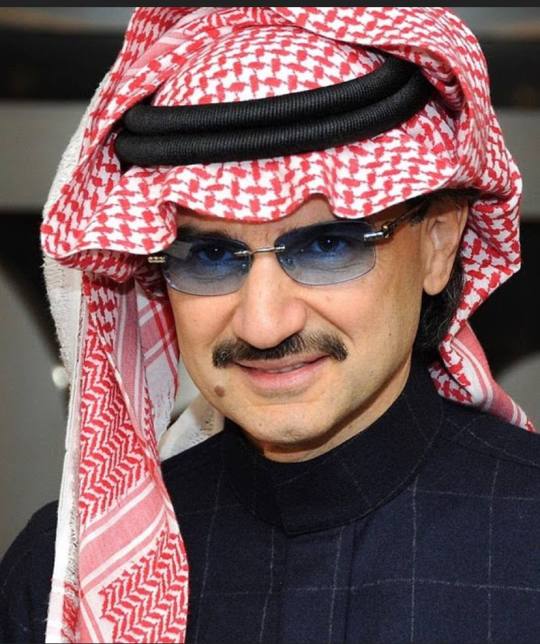
Trump knew about the Saudis' role in the plot on 9/11, their massive amounts of funding to the Cabal (including to the Clintons and the DNC), and the child trafficking.
Prince Al-Waleed bin Talal, one of the biggest contributors to the Clintons and the DNC, not only owned the Four Seasons, but also was a large shareholder of Twitter, Apple, and Citigroup.
He was also not a fan of Donald Trump. They routinely got into it on twitter, such as the exchange below. 👇

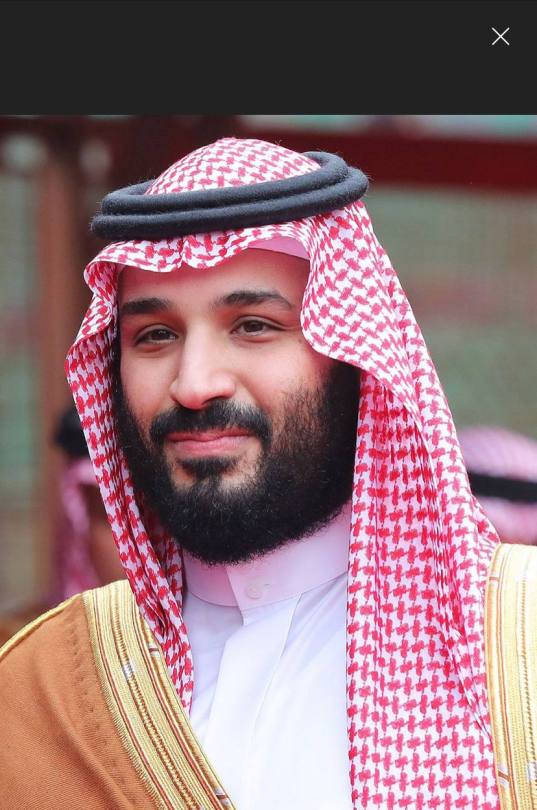
After Trump’s visit to Saudi Arabia and his infamous sword dance ceremony in May, 2017, there was a power change in Saudi Arabia.
King Salman was now at the helm with his son Crown Prince Mohammed bin Salman.
Bin Salman would go on to help Trump and the White Hats bring down Twitter, Google, and Facebook.
Those stories are also in the “Capitulation/Trump’s World Tour” presentations from May 30/31st, 2022.
The May 2017 meeting between Trump and King Salman (and his son Mohammad), was not just another meeting. It was a business meeting.
Trump was more than willing to help Saudi Arabia’s decline in oil profits due to the boom in fracking. He allowed them to be listed on the New York stock exchange.
In return, he got the Saudis to make significant changes, such as liberating women, the end of illegal funding, no more contributions to American politics, no more supplying funds to terrorists or splinter groups, and of course to put an end to the child trafficking.
If they didn’t take the deal Trump threatened to declass everything he had on them from the NSA. King Salman took the deal. All of a sudden, women were allowed to drive, ISIS was retreating, and Syrian rebels suddenly ran out of ammunition.
Although King Salman cooperated…not all the royalties in Saudi Arabia were happy…especially those who were losing the power they once had.
They also didn’t want to become liberal.
Many came to resent King Salman, and started to plot against him, his son Crown Prince bin Salman, and President Trump.
At the forefront of this anti Trump/anti King Salman movement was Ahlaweed bin Talal, and the previous Deputy Crown Prince, Muqrin, and his son, Mansour.
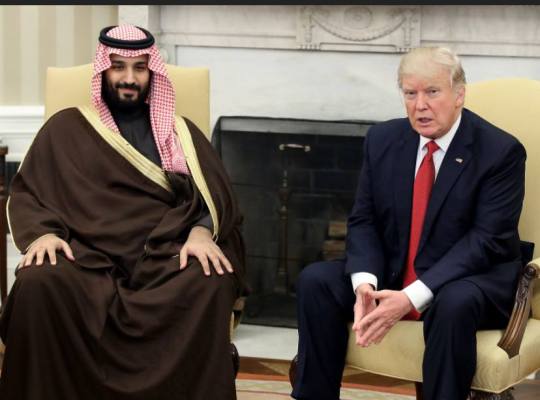
DONALD TRUMP and the Saudi Crown Prince MOHAMMED bin SALMAN were meeting secretly in Vegas to discuss the impeding arrest of the Saudi Prince's.
The Las Vegas Shooting was an Assassination Attempt against Donald Trump and The Crown Prince of Saudi Arabia…by Mossad, ISIS, The FBI, Australia, and possibly UK Spooks or intelligence operators.
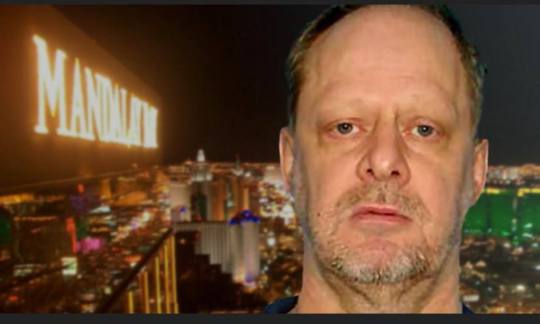
DIVERSION
LAS VEGAS SHOOTING
The shooting out of Paddock’s window was supposed to be a diversion. There would have been a lot of gun shooting noises during the assasination attempt, so the attack on the crowd was to cover-up the gun fire that would have ensued.
The real shooting took place from black helicopters and men on the ground, with very little coming from Paddock’s room.
Remember the real story…Crown Prince Mohammed bin Salman and the attempt on his life.
Steven Paddock was a C*I*A pilot who smuggled guns and children for the Saudis. His role at the Las Vegas shooting was the diversion tactic for the hit teams.
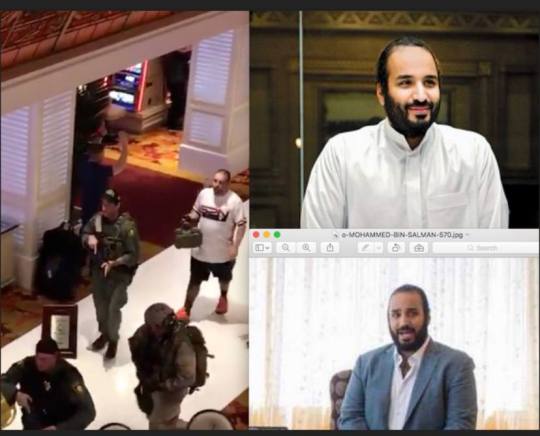
Eventually Trump and his team got wind of the assassination plot against them.
Saudi Crown Prince Mohammed Bin Salman was secretly ushered out of the building, and rescued by a helicopter that came in and rescued him.
Trump and bin Salman’s security detail also created a diversion story saying that Bin Salman was over playing cards at the Tropicana Hotel.
There are pictures of bin Salman leaving the entrance to the Tropicana…but it turns out that was just a decoy and a ruse in order to get bin Salman out of the Mandalay Bay hotel, which they did successfully.
The black helicopters belonged to the Mossad (Israeli Intelligence)…who fired machine guns at the crowd and at Bin Salman’s rescue effort.
This is the reason they turned off their transponders, to cover-up their role in the shooting.

How did TRUMP know Bin Salman was going to get assassinated?
What if Q drop 92…which gave us all the Las Vegas shooting hints…was purposely dropped on November 5th, because…according to the movie “Back to The Future” November 5th was the day time travel was invented?
Was time travel involved in the Las Vegas shooting?
I have mentioned that Donald Trump could be a time traveler!
On October 5th, 2017…just four days after the Las Vegas shooting...Chief-of-staff John Kelly summoned:
the Joint Chiefs of Staff,
NSA boss Mike Rogers,
Pacific Commander-In-Chief Harry Harris,
and combatant commanders to the White House.
This was to bring all hands on deck to back Trump against the deep state, and the cabal.
Continued in Part 3
All links connected 👇
#pay attention#educate yourselves#educate yourself#knowledge is power#reeducate yourself#reeducate yourselves#think for yourselves#think about it#think for yourself#do your homework#do some research#do your own research#ask yourself questions#question everything#rabbit hole#deep dive#las vegas shooting
85 notes
·
View notes
Text
In November 2017, Saudi Arabia's Crown Prince Mohammed bin Salman (MBS) launched an anti-corruption crackdown that shocked the world. He ordered the arrests of dozens of high-ranking officials, businessmen, and members of the royal family, and detained them in the luxurious Ritz Carlton hotel in Riyadh. The move was seen as a bold and unprecedented move by MBS to consolidate his power and eliminate potential rivals. However, it also raised concerns about human rights violations and the rule of law in Saudi Arabia.
The arrests were made under the pretext of fighting corruption, which is a serious problem in Saudi Arabia. However, the crackdown was criticized by many as arbitrary and lacking due process. The detainees were held in the Ritz Carlton for several months, and some were reportedly subjected to harsh treatment to pressure them into confessing to charges of corruption. The detainees were denied access to lawyers, and their families were not informed of their whereabouts or well-being.
Among those detained were prominent figures such as Prince Alwaleed bin Talal, a billionaire investor with significant stakes in international companies such as Twitter and Citigroup, and Prince Miteb bin Abdullah, the former head of the National Guard. The arrests sent shockwaves through the business and political elite in Saudi Arabia and around the world, as they signaled a major shift in power dynamics within the country.
MBS defended the arrests as a necessary step to root out corruption and restore trust in the government. He also claimed that the detainees were treated fairly and that their rights were respected. However, the crackdown was seen by many as a power grab by MBS, who has been accused of consolidating power and suppressing dissent since he became Crown Prince in 2017.
The Ritz Carlton arrests were just one in a series of controversial moves by MBS that have drawn criticism from human rights groups and governments around the world. These include the ongoing war in Yemen, the blockade of Qatar, and the murder of journalist Jamal Khashoggi in the Saudi consulate in Istanbul. Critics argue that MBS is using his position to silence opposition and consolidate power at the expense of human rights and democracy.
In conclusion, the Ritz Carlton arrests were a dramatic and controversial move by MBS to consolidate his power and eliminate potential rivals under the guise of fighting corruption. Although corruption is a serious problem in Saudi Arabia, the crackdown was seen by many as arbitrary and lacking due process. The arrests raised concerns about human rights violations and the rule of law in Saudi Arabia and signaled a major shift in power dynamics within the country. The incident was just one in a series of controversial moves by MBS that have drawn criticism from human rights groups and governments around the world.

0 notes
Text
Un éminent professeur de droit favorable à la réforme en Arabie saoudite a été condamné à mort pour des crimes présumés, notamment avoir un compte Twitter et utiliser WhatsApp pour partager des informations considérées comme "hostiles" au royaume, selon des documents judiciaires vus par le Guardian.L'arrestation d'Awad Al-Qarni, 65 ans, en septembre 2017 a marqué le début d'une répression contre la dissidence par le prince héritier nouvellement nommé, Mohammed bin Salman.Les détails des accusations portées contre Al-Qarni ont maintenant été partagés avec le Guardian par son fils Nasser, qui a fui le royaume l'année dernière et vit au Royaume-Uni, où il a déclaré qu'il demandait l'asile.Al-Qarni a été décrit dans les médias sous contrôle saoudien comme un prédicateur dangereux, mais les dissidents ont déclaré qu'Al-Qarni était un intellectuel important et bien considéré avec une forte audience sur les réseaux sociaux, dont 2 millions d'abonnés sur Twitter.Une Saoudienne condamnée à 34 ans de prison pour avoir utilisé TwitterLire la suiteLes défenseurs des droits de l'homme et les dissidents saoudiens vivant en exil ont averti que les autorités du royaume se sont engagées dans une nouvelle et sévère répression contre les personnes perçues comme des critiques du gouvernement saoudien. L'année dernière, Salma al-Shehab, doctorante à Leeds et mère de deux enfants, a été condamnée à 34 ans de prison pour avoir un compte Twitter et avoir suivi et retweeté des dissidents et des militants. Une autre femme, Noura al-Qahtani, a été condamnée à 45 ans de prison pour avoir utilisé Twitter.Mais les documents à charge partagés par Nasser Al-Qarni montrent que l'utilisation des médias sociaux et d'autres moyens de communication est criminalisée à l'intérieur du royaume depuis le début du règne du prince Mohammed.Le gouvernement saoudien et les investisseurs contrôlés par l'État ont récemment augmenté leur participation financière dans les plateformes de médias sociaux américaines, notamment Twitter et Facebook, et des sociétés de divertissement telles que Disney. Le prince Alwaleed bin Talal, un investisseur saoudien, est le deuxième investisseur de Twitter après le rachat de la plateforme de médias sociaux par Elon Musk. L'investisseur a lui-même été détenu pendant 83 jours lors d'une soi-disant purge anti-corruption en 2017. Le prince Alwaleed a reconnu avoir été libéré après il était parvenu à un "compréhension" avec le royaume qui était "confidentiel et secret entre moi et le gouvernement".Le fonds souverain d'Arabie saoudite, le Fonds d'investissement public, a séparément augmenté sa participation dans Facebook et Meta, la société qui possède Facebook et WhatsApp.Une traduction des accusations portées contre Al-Qarni, pour lesquelles il risque la peine de mort, comprend « l'aveu » du professeur de droit qu'il a utilisé un compte de réseau social sous son propre nom (@awadalqarni) et l'a utilisé « à chaque occasion... pour exprimer ses opinions ». Les documents indiquent également qu'il a « reconnu » avoir participé à un chat WhatsApp et a été accusé d'avoir participé à des vidéos dans lesquelles il faisait l'éloge des Frères musulmans. L'utilisation apparente de Telegram par Al-Qarni et la création d'un compte Telegram ont également été incluses dans les allégations.Jeed Basyouni, responsable du plaidoyer pour le Moyen-Orient et l'Afrique du Nord chez Reprieve, le groupe de défense des droits de l'homme, a déclaré que le cas d'Al-Qarni s'inscrivait dans une tendance observée par le groupe d'universitaires et d'universitaires passibles de la peine de mort pour avoir tweeté et exprimé leurs opinions.Interrogé sur l'investissement du royaume dans Facebook et Twitter, Basyouni a déclaré : « Si ce n'était pas si sinistre, ce serait farfelu. C'est cohérent avec la façon dont ils opèrent sous ce prince héritier.Le royaume cherche à projeter une image internationale d'investissement dans la technologie, les infrastructures modernes, le sport et le divertissement, a déclaré Basyouni.
"Mais en même temps, c'est totalement inconciliable avec tous les cas que nous voyons, où nous parlons du procureur général - sous la direction de Mohammed bin Salman - appelant à tuer des gens pour leurs opinions, pour des tweets, pour conversations. Ils ne sont pas dangereux, ils n'appellent pas au renversement du régime », a-t-elle déclaré.Aux États-Unis, les entreprises ayant d'importants investissements saoudiens ou d'autres activités en Arabie saoudite n'ont pas répondu aux questions du public sur le traitement de la dissidence par l'Arabie saoudite ou l'emprisonnement de ses utilisateurs. Le royaume n'a pas non plus cédé aux appels de l'administration Biden à améliorer son bilan en matière de droits de l'homme.Ahmed Almutairi (également connu sous le nom d'Ahmed Aljbreen), un Saoudien accusé de ne pas s'être enregistré en tant qu'agent étranger alors qu'il aurait participé à un complot en 2014-2015 pour infiltrer Twitter au nom du gouvernement saoudien et voler des données confidentielles d'utilisateurs, est considéré comme un fugitif par le FBI après avoir échappé à l'arrestation aux États-Unis. La violation aurait conduit à la sortie d'au moins un utilisateur de Twitter, Abdulrahman al-Sadhan, qui aurait utilisé un compte satirique pour se moquer du gouvernement. Il a été arrêté et a disparu, puis condamné à des décennies de prison.Loin de faire profil bas, les comptes de médias sociaux d'Almutairi le montrent menant une vie active à Riyad, notamment en publiant une invitation et un pass VIP sur son Snapchat cette semaine à une fête parrainée par Netflix au parc international de Riyad, organisée par le général saoudien. Autorité du divertissement.Le porte-parole de Netflix, Richard Siklos, n'a pas répondu aux demandes de commentaires sur la société parrainant un événement à Riyad dont la liste d'invitation comprenait un homme recherché par le FBI. Le PDG de Netflix, Reed Hastings, a reconnu en 2020 qu'il avait accepté de censurer un épisode de l'émission humoristique Patriot Act avec Hasan Minhaj, qui comprenait des critiques de l'Arabie saoudite pour le meurtre du journaliste Jamal Khashoggi, en échange de l'Arabie saoudite autorisant le contenu explicite à montrer dans le royaume."Il est plus qu'odieux qu'un éminent professeur de droit risque la peine de mort pour avoir utilisé Twitter alors qu'un fugitif du FBI, recherché pour avoir infiltré le siège de Twitter, reçoive une invitation VIP parrainée par Netflix pour assister à un événement du gouvernement saoudien", a déclaré Khalid Aljabri, qui vit à exilé et dont le père était un ancien officier du renseignement saoudien, et dont le frère et la sœur sont détenus dans le royaume.Les dissidents saoudiens vivant aux États-Unis ont également appris cette semaine qu'Ibrahim Alhussayen, un Saoudien qui vivait aux États-Unis et a plaidé coupable d'avoir menti aux autorités après que les procureurs ont allégué qu'il avait harcelé et menacé des personnes vivant aux États-Unis et au Canada, il a été expulsé vers l'Arabie saoudite après avoir purgé une courte peine.L'une des victimes d'Alhussayen a publié cette semaine qu'un compte appartenant au harceleur avait cherché à la contacter après sa sortie de prison. Le DOJ n'a pas répondu à une demande de commentaire.Le gouvernement saoudien n'a pas répondu aux demandes de commentaires.
0 notes
Text
India qualify for AFC U-17 Asian Cup 2023 despite losing 1-2 against Saudi Arabia | Football News - Times of India
India qualify for AFC U-17 Asian Cup 2023 despite losing 1-2 against Saudi Arabia | Football News – Times of India
DAMMAM: India secured a berth for next year’s AFC U-17 Asian Cup despite going down 1-2 to hosts Saudi Arabia in their final qualification match here. Talal Haji (22nd, 58th) scored a brace to hand Saudi Arabia a 2-0 lead before India scored a consolation goal through Thanglalsoun Gangte (90+5) in the stoppage time at the Prince Prince Mohammed Bin Fahd Stadium on Sunday night. Despite the…

View On WordPress
0 notes
Photo





Royal Birthdays for today, November 14th:
Maurice, Prince of Orange, 1567
Maria Cristina of Savoy, Queen of the Two Sicilies, 1812
Hussein bin Talal, King of Jordan, 1935
Charles III, King of the United Kingdom, 1948
Hamdan bin Mohammed Al Maktoum, Crown Prince of Dubai, 1982
#maria cristina of savoy#maurice of nassau#charles iii#hussein bin talal#Hamdan bin Mohammed Al Maktoum#royal birthdays#long live the queue
16 notes
·
View notes
Text
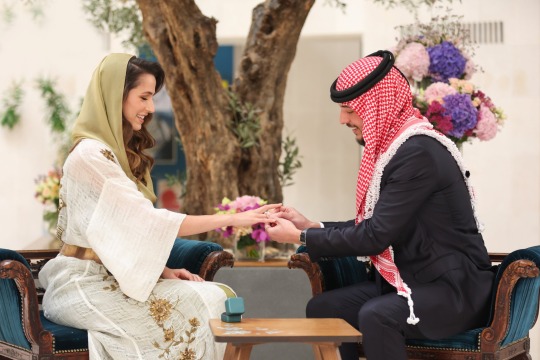
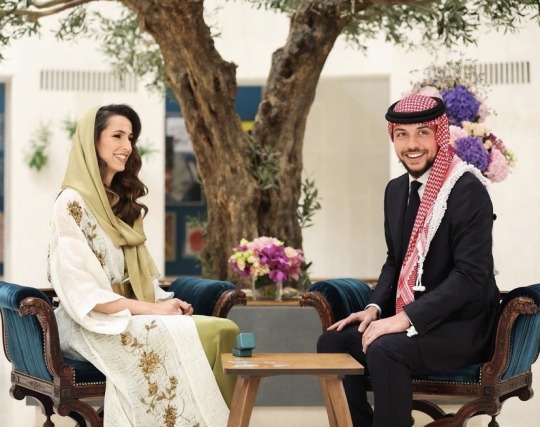
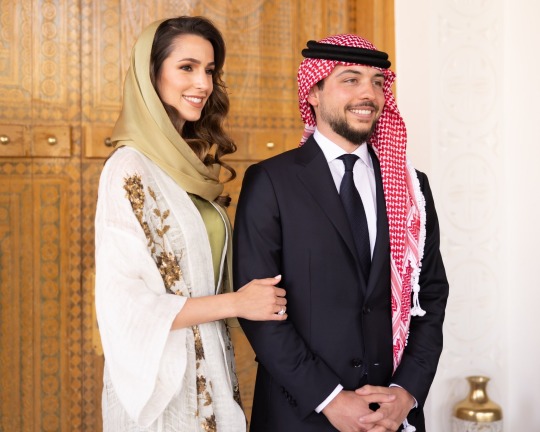
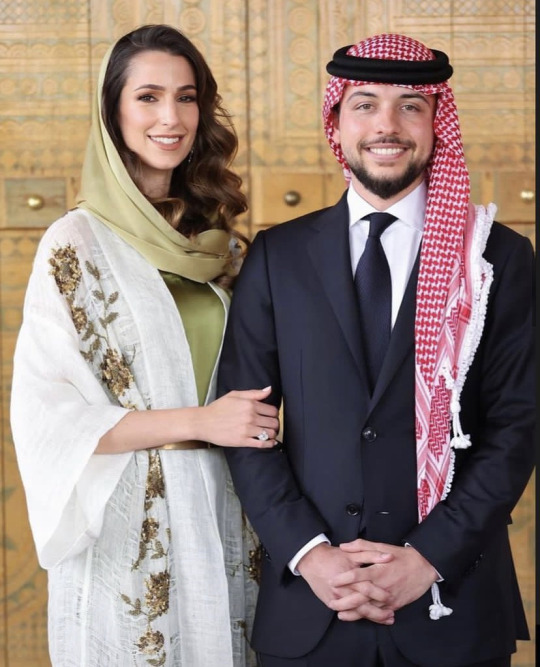
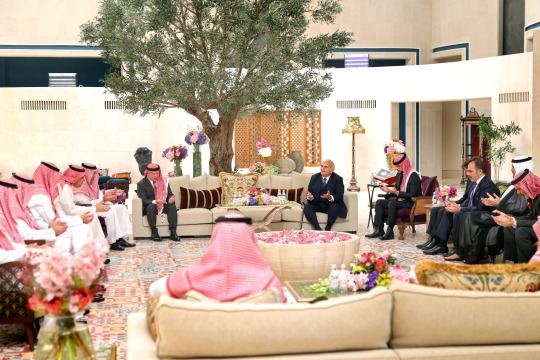
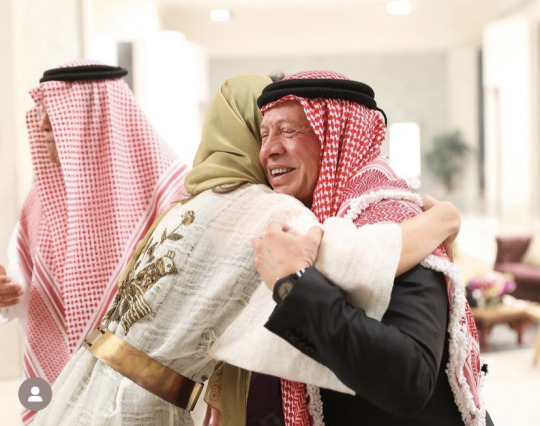
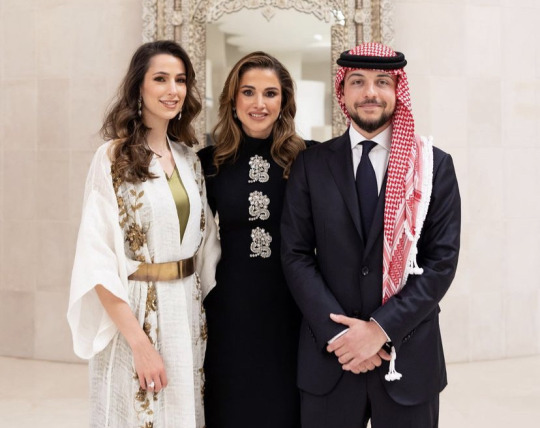
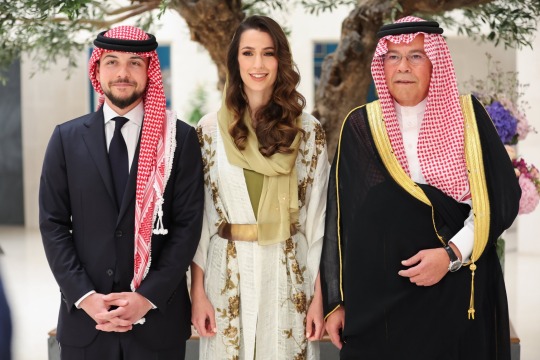
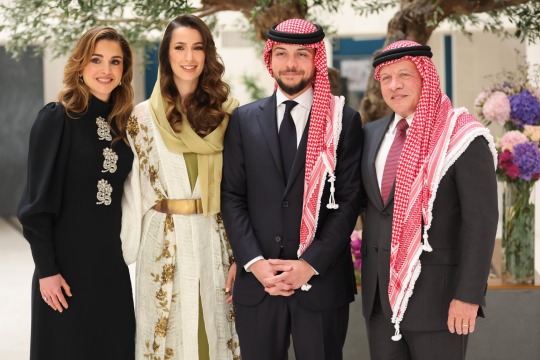
CROWN PRINCE HUSSEIN OF JORDAN IS ENGAGED !!!! 🎉🥳🎊🎉🥳🎊🎉🥳🎊
🇯🇴❤️🇸🇦
RHCJO- “The Royal Hashemite Court is pleased to announce the engagement of His Royal Highness Crown Prince Al Hussein bin Abdullah Il to Ms Raiwa Khaled bin Mused bin Saif bin Abdulaziz Al Saif, and extends its sincere congratulations on this occasion”
Queen Rania- “I didn't think it was possible to hold so much joy in my heart! Congratulations to my eldest Prince Hussein and his beautiful bride-to-be, Rajwa”
The engagement took place at the home of Al Saif's father in Riyadh and was attended by members of the Royal Hashemite Court (His Royal Highness Prince Hassan bin Talal, Prince Hashim bin Abdullah Il, Prince Ali bin Al- Hussein, Prince Hashem bin Hussein, and Prince Ghazi bin Mohammed. And Prince Rashid bin Hassan) and the Al Saif family. The Al Saif family is traced back to the Subai tribe and they have been the sheikhs of the town of Al-Attar in central Saudi Arabia since former king of Saudi Arabia Abdulaziz Al Saud began his reign. Al Saif was born in Riyadh in April 1994 and studied at the College of Architecture at Syracuse University in New York.
68 notes
·
View notes
Text










صور من عقد قران سميحة الفايز و زيد الرفاعي بقصر الأمير الراحل محمد بن طلال يوم الاثنين الماضي.
وقد اخترت العروس ثوباً من @kumbazfashionhouse
© Dalia Naber (@naberid )
.
the “Katb al Kitab” (signing the marriage contract) ceremony of Samiha Zaid Al-Fayez and Zaid Al-Rifai at the palace of the late Prince Mohammed bin Talal on 7 March 2022.
The gorgeous bride looked beautiful in Thoub by @kumbazfashionhouse
.
6 notes
·
View notes
Photo

“I dont know if its just me but I see theres a strong resemblance between Queen Rania and Samiha from the Jordanian royals” - Submitted by Anonymous
“Samiha al fayez the daughter of Prince Mohamed bin Talal resembles queen Rania!!! It is strange!” - Submitted by Anonymous
16 notes
·
View notes
Text
Jordan is where domestic and regional fissures collide

By James M. Dorsey
Former Crown Prince Hamzah bin Hussein has papered over a rare public dispute in the ruling Jordanian family in a move that is unlikely to resolve long-standing fissures in society and among the country’s elite and that echo multiple Middle Eastern fault lines.
Differences over socio-economic policies, governance, and last year’s normalization of relations between Israel, the United Arab Emirates and three other Arab states as well as leadership of the Muslim world were laid glaringly bare by a security crackdown that targeted not only Prince Hamzah, a popular, modest, and pious 41-year-old half-brother of King Abdullah, but also seemingly unrelated others perceived by the monarch as a threat.
Reading tea leaves, the perceived threats may be twofold albeit unrelated: Prince Hamzah’s association with powerful conservative tribes who over the last decade have demanded an end to corruption and prominent figures with close ties to Saudi Arabia.
The kingdom, home to Islam’s two holiest cities, Mecca and Medina, has been quietly manoeuvring to force Jordan, the administrator of the faith’s third holiest site, Al-Haram ash-Sharif or Temple Mount in Jerusalem, to share its role. A say in Jerusalem would significantly boost the kingdom’s claim to leadership of the Muslim world.
There is little evidence that the two forces were working together despite government assertions that it had intercepted communications between the two in the days prior to this weekend’s crackdown that prompted Prince Hamzah to speak out.
Prince Hamzah’s statement focused on domestic issues, suggesting that the government may have been most immediately concerned that he was fuelling further protests particularly on the eve of Jordan’s April 11 centenary. The concern may have created the opportunity to address perceived less imminent threats.
The crackdown led to the arrest of among others two prominent leaders of the Al-Majali tribe and political clan, long a pillar of Hashemite rule, and Bassem Awadallah, a former top aide to King Abdullah, finance minister and envoy to Saudi Arabia, who is also an advisor to Saudi Crown Prince Mohammed bin Salman. Mr. Awadallah is a dual Jordanian-Saudi citizen.
The Washington Post reported that Saudi Foreign Minister Faisal bin Farhan had requested during a visit to Amman on Tuesday that Mr. Awadallah be released and allowed to travel to the kingdom with his delegation.
Privately, many Jordanians fear that Saudi Arabia could support efforts to resolve the Israeli-Palestinian conflict by turning the kingdom into a Palestinian state that would incorporate those parts of the occupied West Bank that would not be annexed by Israel.
Saudi Arabia has so far refused to establish diplomatic relations with Israel as long as the Palestinian issue has not been resolved. Mr. Bin Farhan reiterated the kingdom’s position earlier this month but also told CNN that relations with Israel would be "extremely helpful" and bring "tremendous benefits."
Relations between Saudi Arabia and Jordan, hard hit by the pandemic and home to one of the world’s largest Syrian refugee contingents, were strained by King Abdullah’s refusal to embrace former US President Donald J. Trump’s Deal of the Century Israeli-Palestinian peace plan.
King Abdullah opposed the plan because it recognized Israeli annexation of East Jerusalem, legitimized Israeli settlements in occupied territory and envisioned Israeli annexation of parts of the West Bank.
Saudi Arabia this weekend, like other Middle Eastern countries, was quick to express support for King Abdullah.
Prince Hamzah and Mr. Awadallah were not known to be close. Tribal leaders rejected Mr. Awadallah’s privatization of telecommunications, potash and phosphate companies during his tenure as finance minister as primarily benefitting the country’s allegedly corrupt elite and foreign companies.
Prince Hamzah, in an agreement mediated by the former crown prince’s uncle, Prince Hassan bin Talal, and several other princes, pledged allegiance to King Abdullah days after releasing two clips in which he denounced corruption and poor governance that had allegedly prevailed for much of the monarch’s rule. King Abdullah acceded to the throne in 1999.
The agreement takes the immediate sting out of the rare public airing of differences within the ruling family but fails to tackle grievances of the tribes and other segments of the population.
Prince Hamzah’s declaration of fealty may be less of a concession than it would appear at first glance. The former crown prince is not believed to aspire to succeeding King Abdullah.
Moreover, protests going back to the time of the 2011 popular Arab revolts and continuing more recently with the tribal-backed Hirak protest movement, have consistently stopped short of demanding regime change.
Tribal leaders went perhaps furthest when in 2011 they issued a statement asserting corruption among members of Kuwait-born Queen Rania’s Palestinian family and demanded that King Abdullah divorce his wife.
In the government’s statement on Sunday, Foreign Minister Ayman Safadi studiously avoided speaking of an attempted coup, asserting instead that the former crown prince and others had targeted “the country’s security and stability.”
Said a tribal activist: “Our issue is not the king or the family. Nobody is asking for regime change. That does not mean that our leaders have a blank check. They have to introduce real change and accommodate popular demands for transparency and accountable governance.”
A podcast version of this story is available on Soundcloud, Itunes, Spotify, Stitcher, TuneIn, Spreaker, Pocket Casts, Tumblr, Podbean, Audecibel, Castbox, and Patreon.
Dr. James M. Dorsey is an award-winning journalist and a senior fellow at Nanyang Technological University’s S. Rajaratnam School of International Studies in Singapore and the National University of Singapore’s Middle East Institute as well as an Honorary Senior Non-Resident Fellow at Eye on ISIS.
2 notes
·
View notes
Text


Princess Iman bint Abdullah of Jordan at the celebration of her father's Silver Jubilee in Amman, 9 June 2024
12 notes
·
View notes
Note
did any foreign royals attend w&k's wedding?
Yep, quite a lot actually:
Belgium: The King and Queen (then Duke and Duchess of Brabant)

Bhutan- King Jigme Khesar Namgyel Wangchuck (I can’t find a pic)
Brunei- The Sultan and Queen

Kuwait- Sheikh Ahmad Hmoud Al-Saba

Lesotho- Prince Seeiso and Princess Mabareng

Luxembourg- Grand Duke and Grand Duchess

Malaysia- The King and Queen (can’t find pics)
Monaco- Prince Albert and Princess Charlene (then Charlene Wittstock)

Morocco- Princess Lalla Salma

The Netherlands- King WA and Queen Maxima (then Prince and Princess of Orange)

Oman- Prince Sayyid Haitham bin Tariq Al Said

Qatar- The Emir and Sheikha Mozah (can’t find good pic)
Saudi Arabia- Prince Mohamed bin Nawaf and Princess Fadwa (can only find pic from pre-wedding thing). Prince Al-Waleed bin Talal and Princess Ameerah

Swaziland- The King and one of his Queens

Thailand- Princess Maha Chakri Sirindhorn

Tonga- The King

Dubai- Crown Prince (same pic as above)

Abu Dhabi- Crown Prince (no pics)
There were also people from non reigning royal families like the Greeks

78 notes
·
View notes
Text
Felipe & Letizia’s decade: Trips Abroad
F&L Decade 11/??
On April 12, 2011, before heading to Jordan, Felipe and Letizia visited the Palestinian Territories, where they were received by the President of the Palestinian National Authority, Mahmoud Abbas, intermediate point of the trip that has taken them to Israel and concludes in Jordan.

In Ramallah, after being greeted by Mahmoud Abbas, His Royal Highnesses, the Princes of Asturias listened to the national anthems, before the magazine was produced to the troops and the greeting to the delegations.

Subsequently, Don Felipe met with the president of the Palestinian National Authority (PNA), accompanied by the Minister of Foreign Affairs, Trinidad Jiménez. After this meeting, a lunch was offered to them by the President of the Palestinian National Authority.

Later on April 12, they started their official visit to Jordan, in response to an invitation from the King of Jordan. At the airport in Amman they were met by Prince Talal Bin Mohamed and Princess Ghida Talal, who accompanied them during their visit to the Hashemite Kingdom. The day concluded with a private dinner with the King and Queen of Jordan.


On the 13th, accompanied by the Secretary of State for Foreign and Ibero-American Affairs, Juan Antonio Yáñez-Barnuevo, Don Felipe and Doña Letizia visited the Jordanian Parliament, where they met with the president of the Chamber, Taher Masri, and heads of parliamentary commissions. They also made a tribute in front of the tree of life in the Martyrs Memory Museum. Don Felipe also had a meeting with the Prime Minister of Jordan, Marouf Bakhit. At noon, Felipe and Letizia had lunch at the Royal Palace.
At the University of Jordan, they were able to learn about Jordanian university reality and, in particular, a resource center used for the activities of the Spanish department, one of the most demanded languages in this country. Created in 1962, the University of Jordan, which has 18 faculties, studies more than 37,000 students.



Later on, Felipe and Letizia received the Spanish community in Jordan. In the speech before the Spaniards residing in Jordan, Don Felipe recalled that, 12 years ago he made a first official visit to Jordan, a few months after the death of King Hussein, and that, on the current official trip, "we had the opportunity to see the progress of this beloved country in various fields."
"We know that you represent several generations of compatriots; some are here for family reasons; others for dedication to the teaching of Spanish, for business reasons or for your activity as civil servants, volunteers or cooperators" and "you all live intensely what happens both in Spain as in Jordan; you care and contribute, in a commendable way and sometimes without realizing it, that our two peoples get to know each other better and get closer every day, with their cultures and languages, with their traditions and their history, also with their hopes," said Don Felipe.

On the 14th, Felipe and Letizia held a meeting with Jordanian personalities related to the economic and commercial field during a working breakfast, before leaving.
#King Felipe#Queen Letizia#King Felipe of Spain#Queen Letizia of Spain#King Felipe VI#King Felipe VI of Spain#F&L Decade#Letizia Decade
5 notes
·
View notes
Video
undefined
tumblr
Wadjda - Le film
A winning, handsomely crafted story with a charismatic lead guaranteed to charm international auds.
Initially the biggest talking point about “#Wadjda” will be that a woman, Haifaa Al Mansour, has directed the first Saudi Arabian feature shot entirely within the kingdom. Once the novelty is processed, critics and the public will likely agree that the pic transcends mere surprise value and delivers a winning, handsomely crafted story with a charismatic lead guaranteed to charm international auds. Resembling kid-centered Iranian pics that tackle sticky topics via pint-sized protags, “Wadjda” uses a spunky girl to explore women’s limitations within Arabian society. A vigorous fest life is assured, followed by probable arthouse play.
Screenings in Saudi Arabia are another matter, since the country has no cinemas. Especially interesting will be how the film plays in the neighboring United Arab Emirates, a nation with an avid multiplex culture and a slightly more relaxed view of women’s roles in society. Shooting had to be a difficult undertaking, no doubt helped by powerful supporters; Prince Al-Waleed bin Talal is given prominent thanks in the closing credits, and while Germany’s Razor Film is the main producing entity, backing comes from a range of global movie initiatives including The Royal Film Commission Jordan - RFC, the Abu Dhabi Film Commission, Sundance Film Festival and the Hubert Bals Fund.
Al Mansour trained abroad and has award-winning shorts and a docu, “Women Without Shadows,” already under her belt, so although producers Roman Paul and Gerhard Meixner may have helped shape the pic along international lines, “Wadjda” feels geared to Arab and global auds. Repetitions of women’s constraints, already well established in the script, are likely meant for foreign viewers, though plenty of lines, including humorous ones, are included for local ears.
Ten-year-old Wadjda (newcomer Waad Mohammed) and her mom (Reem Abdullah) live in a Riyadh suburb, with Wadjda’s affectionate father (Sultan Al Assaf) making only occasional visits from his parents’ house nearby. Mom suspects her in-laws are looking to marry her husband off again since she hasn’t produced a son, but he denies having eyes for anyone else.
Mom talks of little else except pleasing her husband, yet Wadjda is preoccupied with asserting her independence on the playground with best friend Abdullah (Abdullrahman Al Gohani). Most of all, she wants a bike so they can race together, but girls aren’t allowed to ride bikes in Saudi Arabia for fear that they would compromise a woman’s virginity (and encourage freedom of movement in a country where women aren’t allowed to drive).
A new green bike at the local toy store captures Wadjda’s fancy, and she’s determined to raise the $213 needed. Constantly scolded for lax girlish propriety by her headmistress, Hussa (Ahd), Wadjda surprises the school by enrolling in a Koran competition whose prize money will more than cover the bike’s purchase.
Wadjda is constantly told she’s overstepping mandatory modesty; her voice shouldn’t be overheard by men, her head must be covered, she mustn’t listen to pop songs. Yet, delightfully, the girl is anything but contrite. Constantly banging into metaphorical walls erected around her gender, Wadjda’s blithe resolve protects her from bruises: With her irresistible combination of spunk and guile, she’ll achieve her goals.
The adults around her aren’t so lucky, starting with her mother, whose fixation on her husband blinds her to much else (however, the pic foregrounds a loving relationship between mother and daughter). Another side of the coin is Hussa, a hardline hypocrite who compensates for her own frustrations by rigidly imposing Wahabi codes of behavior. With enormous sympathy for all, Al Mansour captures the isolation of Saudi women and their parallel lives of freedom at home and invisibility outside.
A natural onscreen who was 12 at the time of shooting, young thesp Mohammed captivates with a palpable confidence: Her T-shirt proudly proclaims, “I am a Great Catch!,” and she is. Single-monikered Ahd is a believable scold, and while other thesps, including Saudi TV star Abdullah, are less comfortable in emotional roles, they maintain an authentic honesty.
Visuals are clean and satisfying, revealing a confident fluency in compositions and lensing. The majority of the crew is German, but Al Mansour delivers a final product that thankfully doesn’t disguise its Arab origins under a generic internationalism. Although there’s a level of predictability to the finale, it acts as a gift not just to Wadjda, but to her audience.
— Jay Weissberg, Variety
1 note
·
View note
Link
ASAD ABUKHALIL: Well, first of all, I need to say that it’s quite ironic for the mainstream media, especially the Washington Post, which has been invoking lofty ideals about democracy as a slogan of it — even though it’s owned by the wealthiest man in the world — has been speaking in the name of democracy, and yet has been serving as the mouthpiece for the intelligence apparatus.
Mainstream media, the Post and others, imply very directly that the president of the United States has to do whatever dictates from the military and intelligence apparatus, as if this is the chain of command. I mean, it is the president of the United States who should subordinate the military intelligence agencies to its role as somebody who is elected by the United States, the American public, and so on.
However, I think because the Washington Post in particular has been a mouthpiece of the intelligence service, particularly the CIA, it should be said that there is an agenda for the CIA on this. And I’m glad you quoted John Brennan. As you know, John Brennan, before he became CIA director, was the Middle East and the CIA — and he was CIA station chief in Saudi Arabia, where he cultivated very close ties with the royal family.
There is nothing about the need for accountability in the CIA leaks which wants to bring down Mohammed bin Salman. This is all about choosing between the various lousy princes.
As you know, Mohammed bin Nayef was ousted last year by Mohammed bin Salman, his cousin. He was the choice for the intelligence agencies and the FBI, because this man, when he was deputy to his father, the minister of interior for many years, was a very close ally — client, you should say — of the U.S. government and its intelligence agency.
Mohammed bin Salman was unknown. It’s not somebody that they know for a long time. But far from wanting great accountability for the murder of Khashoggi, as if the intelligence agencies are really up in arms about the death of anybody in the Middle East, this is about worrying about the future of the Saudi regime.
In other words, I feel that Donald Trump wants what is best for his administration. He has somebody, he has Mohammed bin Salman, as he best can have him. He is holding him by the neck. And if he survives, he — Mohammed bin Salman — will be greatly indebted to Trump, and to Netanyahu, because those two stood by him and kept him afloat. And because of that situation, Mohammad bin Salman will be obligated to make so many concessions — political, military, and financial — to the United States, and even to Israel. Some of it would be more direct now. Perhaps he would even visit the Israeli occupation state.
On the other hand, the intelligence agencies, I think, my reading, is that they do not think that Mohamed bin Salman is capable of steering the regime in a direction that is more in the interest of the stability of the regime. As a result they would rather make a change in order to save the regime. They worry that bin Salman is too reckless, and his thinking is ruled too precarious, which endangered American interests in that region.
BEN NORTON: There’s a lot to respond to there. I want to talk first, before we talk about the tension within the royal family — you mentioned Mohammed bin Nayef, who was slated to be the next king and was replaced by Mohammed bin Salman. Before we get to that, though, let’s talk a bit about the relationship between the CIA and Saudi Arabia.
As you mentioned, John Brennan, the former director, had a longstanding tie to Saudi Arabia, worked a lot in the kingdom. And of course, I mentioned the war in Afghanistan in the 1980s, in which the CIA worked with Saudi Arabia and Pakistan to arm Islamist extremists to fight against the Soviet Union, and the Afghan government backed by the Soviet Union.
We also saw in Syria that the CIA worked with Saudi Arabia to arm and train rebels, many of whom were also Salafi-jihadist extremists. So this relationship continues to this day. It’s a very close one.
So can you talk a bit more about the relationship between the U.S. intelligence services and Saudi Arabia, and maybe the different figures aside from Muhammad bin Salman and what their roles have been in the CIA? Because there is speculation that Jamal Khashoggi himself might have been a CIA asset.
ASAD ABUKHALIL: Well, I mean, I do not know about that. But I’m glad in your introduction you accurately — contrary to the way the media refer to the past of Jamal Khashoggi — accurately described his background. Jamal Khashoggi, it should be said over and over again, was part of the establishment and the propaganda outlets of the Saudi regime for many years.
This is a man who’s been made by Human Rights Watch and mainstream media as if he’s a longtime critic of the Saudi government. This is a man who spent a career making money from being a propagandist for the Saudi royal family, and moving between one prince and another.
And in fact, he only fell in trouble — he did not count on democracy. He counted on the wrong prince, which is the Prince Al-Waleed bin Talal, who fell out of favor in this new regime in Saudi Arabia. And as a result he was in trouble himself, and he fled.
And he suddenly discovered the love of democracy and freedom in the United States, in the really lame articles he’s been writing for The Washington Post, which reads to me as being heavily edited by his editors over there, which is fine.
I should also say that Jamal Khashoggi was very mild in his criticism of the Saudi regime. He did not in any way call for an overthrow. He always committed himself to the preservation of the monarchy, and even played, he even played on the crown prince of Saudi Arabia. This is left unmentioned in the media coverage.
So John Brennan himself — and this is a graduate of the Obama administration — suddenly now they are now posing as advocates of democracy in the Middle East when they themselves were characteristic of every administration since World War II; have been advocates of dictatorship and despots throughout the region.
In fact, propaganda brochures that I have seen in Arabic, produced by the Saudi regime, have quotations from John Brennan in praise of the Saudi regime and American-Saudi relations. And if you look now on social media to the graduates of the Obama administration, the various functionaries, you will see now that they are pretending as if Trump suddenly changed the course of American foreign policy and made it not in any way pay too much attention for democracy.
If you look at the agenda or the record of the Obama administration it doesn’t differ at all from the Trump record. If anything, Trump is more honest than the duplicitous Obama administration. And in fact, in Ben Rhodes’ book about Obama’s foreign policy, John Brennan himself is quoted as opposing any change for democracy in Egypt and for standing up to the dictatorship of Hosni Mubarak. And he made the old classical colonial point that “Arabs are not ready for democracy.”
So in that sense the military intelligence apparatuses basically have various intelligence agencies in the Middle East that they basically work at their pleasure. So they have a great relationship with them. Sometimes they are paid by them, like in the case of Saudi Arabia. Or sometimes they pay them, as in the case of Egypt and Jordan, where the intelligence agencies there are subcontractors of the CIA and the various intelligence agencies.
And it is, in fact, for this reason that the American intelligence agencies were caught totally by surprise with the Arab uprising in 2011; because they relied too much on the advice and wisdom of intelligence agencies in Jordan, Egypt, and elsewhere that they pay a lot of money for, in order to provide them with work that perhaps they were too lazy to do on their own.
BEN NORTON: And then, finally, let’s talk a bit — you mentioned earlier Mohammed bin Nayef — let’s talk about the internal dynamics. Mohammed bin Nayef, who was supposed to be the original crown prince; he was supposed to replace the current king, King Salman, who is likely senile. Mohammed bin Salman took his place, took Mohammed bin Nayef’s place.
MBN was the interior minister. He oversaw the so-called “counterterrorism” program inside Saudi Arabia. He also studied in the U.S., and he trained with the FBI. In 2015, in this kind of ceremony, when he was appointed crown prince, he visited with Obama in the White House. It was very clear that NBN was the U.S. man, who was going to be the next king.
Also, you’ve mentioned before in a previous interview here at The Real News that Khashoggi was very close to Turki bin Faisal, as well. Turki bin Faisal was the head of Saudi intelligence; he was the Saudi ambassador to the United States. And when he was here in the U.S., Khashoggi was actually his spokesperson.
So can you talk about who the U.S. and the CIA potentially — of course, this is largely speculation — but who they would prefer to have over MBS? It seems to me that they want to go back to MBN. Do you think that’s one of the main reasons?
ASAD ABUKHALIL: You’re absolutely right. And I want to say that — just one minor correction. Mohammad bin Nayef did study in Portland for college, but he did not graduate. Most Saudi royal princes study in the United States, but they never bother to graduate, for some reason. In fact, and this is scandalous, in my opinion, Turki al-Faisal is now a professor at Georgetown University. This man studied at Georgetown University in the 1960s at the School of Foreign Service, but he never graduated. He in fact was awarded a degree that he did not earn only many years later thanks to the generous donations he and his family made to the university.
As far as Mohammed bin Nayef is concerned, you are right in mentioning that he studied in the United States because, this has become very clear in many Western media writings. They really like princes who study in the United States. They assume that they are much easier to do business with, for some reason. And one of the complaints that I have read, I think even in Thomas Friedman’s article, as annoying as they are on the eyes, that Mohammed bin Salman is somebody who did not study in the United States.
Well, I think the preference has been very clear for many years that Mohammed bin Nayef is their choice. It is not that Mohammed bin Salman has been unreliable, or he has not been loyal. But they worry that by his recklessness and impulsiveness he may jeopardize the very security of the Saudi royal family. This is something that was missing of the coverage.
So I think the CIA’s interest is that they are really worried about the precariousness of the Saudi regime. More than ever, in a long time of contemporary history of the regime, maybe the first time since the 1960s, early 1960s, when the regime was really in trouble with the rising tide of Nasserism, there is a real danger about the cohesiveness of the royal family and the stability of the regime.
Because for this reason, I think that the CIA and other intelligence agencies of the U.S. government, and the military, would rather have any other prince. It doesn’t have to be Mohammed bin Nayef. But this guy in particular [Mohammed bin Salman] has proven to be too adventurous, too troublesome. And sometimes he seems to act on his own. And that really worries the United States. Not so much out of concern about the people of Yemen, or about about the plight of journalists who may be killed by this prince. But it’s more about the stability of the region due to his action over there.
46 notes
·
View notes
Photo





Royal Birthdays for today, November 14th:
Maurice, Prince of Orange, 1567
Maria Cristina of Savoy, Queen of the Two Sicilies, 1812
Hussein bin Talal, King of Jordan, 1935
Charles, Prince of Wales, 1948
Hamdan bin Mohammed Al Maktoum, Crown Prince of Dubai, 1982
#maurice of nassau#maria cristina of savoy#hussein bin talal#Prince Charles#Hamdan bin Mohammed Al Maktoum#royal birthdays#long live the queue
33 notes
·
View notes